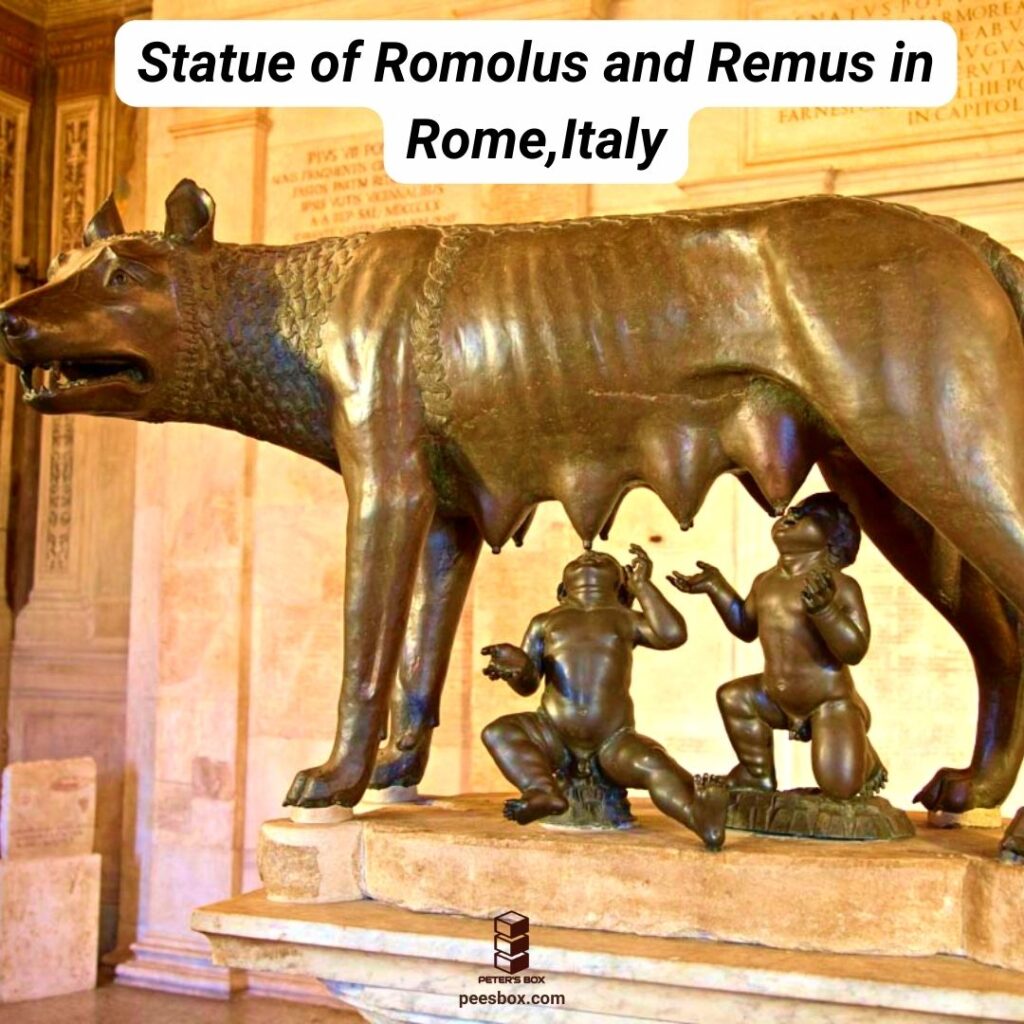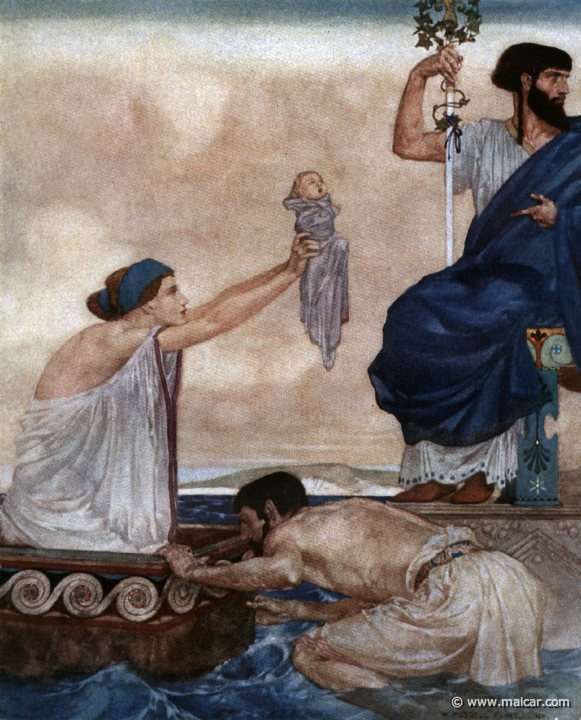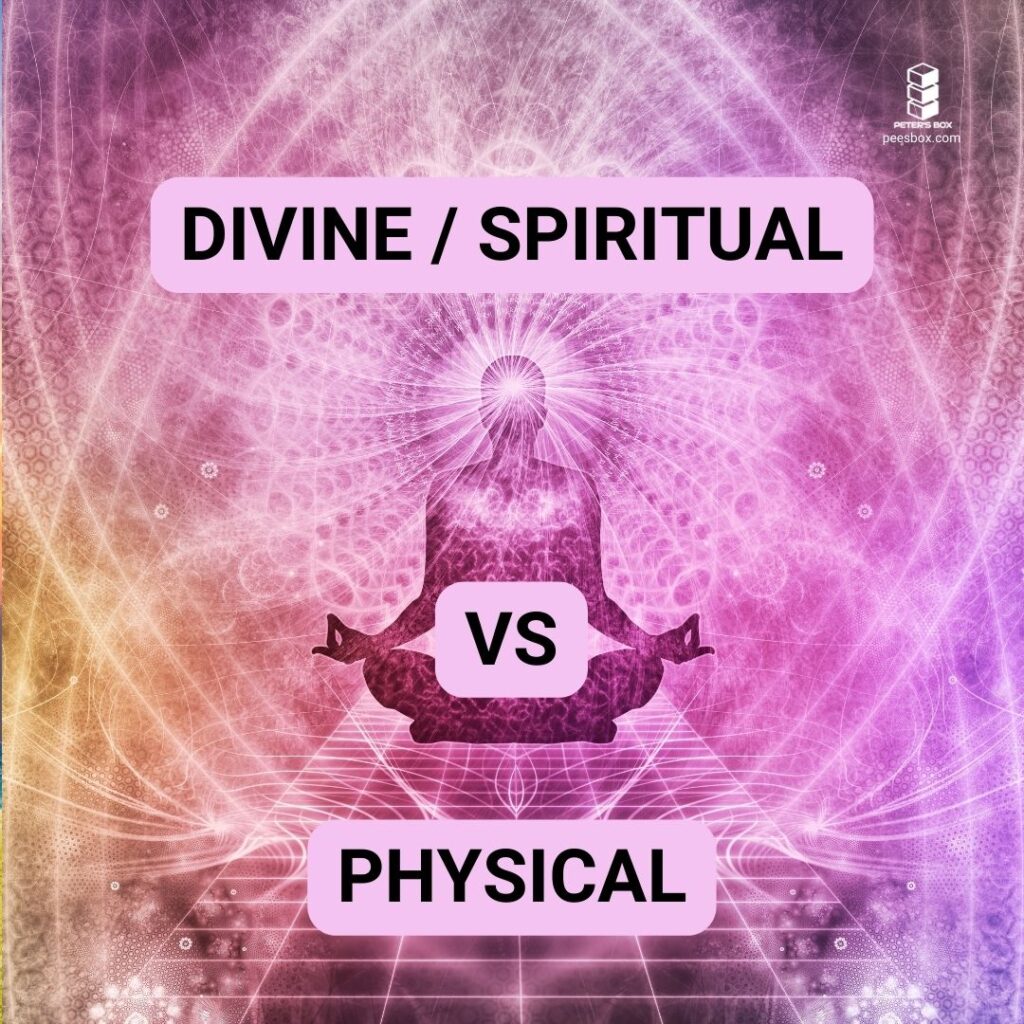Last updated on August 15th, 2023 at 12:27 pm
Did you know your favourite office shoes can outlive you? Find out how in my previous post, The Shocking Truth About Your Favourite Office Shoe. In today’s post, I inquire into the nature of sin and if God is capable of sin. Continue reading to understand Peter’s dilemma.
When God sinned
When God impregnated Mary, was it fornication or adultery? This inquiry may be seen as an indictment by the Christian, making me guilty of blasphemy. The tone of the query is far from blasphemous, disrespectful, or mocking. It is one of fascination and wonder about the workings of religious language. Religion has always piqued my interest—before I became a Christian, while I was a Christian, and after I abandoned Christianity, all the way back to my point of incredulity. My last days in the church were filled with questions, just like the beginning. The question I seek answers to has already riled up some Christians, notably fundamentalists and those I refer to as “faith keepers.” I can see why. I am quite curious if the same reaction this question is receiving would have been the same reaction to the question that announced my conversion from unbelief to Christianity.
If I had questioned, ‘What is faith?’ I am almost convinced, like the certainty of the uncertainty of Jesus Christ’s return, that I would have been treated as a friend of the faith. My inquiry would not be rejected. I would not be accused of blasphemy or mockery. Instead, I would have received some favourable attention from the devout and would have been seen as a delicate person seeking God’s ways. When I was a teenager in high school, I asked the first question I ever had about Christianity. After hearing the word faith tossed, turned, sung, and preached in the assembly hall, classrooms, and dormitories by student denominational leaders, chaplains, and every devout Christian, I couldn’t help but want to understand and be a part of the cult that revered faith and told of its wonders and effects to those who practised it.
My first question ever to Christianity
As I stepped out of my dorm one day, I ran into the school prefect, who also served as the student religious leader. I instantly asked him the question I so much wanted to have answered. I told him that the term “faith” fascinated me. The faithful’s continuous proclamation of the word in every nook and cranny excited my curiosity. The devout referred to faith as the highest prize that one must possess in order to satisfy God. I asked Jonathan, the school prefect, the question. “Everywhere I turn, I hear the word “faith.” “What at all is faith?”

I wasn’t shocked by his response. Despite the fact that I was already aware of it, he rattled off the classical definition in the New Testament. Faith is the substance of things hoped for and the evidence of things not seen. I nodded, fascinated, as he told me the answer. I reasoned that if everyone was praising faith, there was no harm in checking it out. That is how I came to accept Christianity. I was meant to have faith, which would drastically change my life. The concept and its promises, I suppose, didn’t satisfy me completely. If I were, I would not have returned to the point of doubt and labelled myself an atheist. As a result, I find myself back where I began, this time fascinated by how intelligible and useful religious language is.
Definitions
If you answer one or the other, it implies God has sinned. But how can God sin? Let’s look at the definition of sin, then, so we can check the validity of the question. Sin is usually defined as any action that violates the nature of God. And the nature of God? Put simply, God is holy. And holiness? Whatever is pure, good, and true. Is fornication or adultery good? According to the Christian faith, no. They are sins against God. God even punished his beloved King David for taking someone’s wife. It is clear, at least, that God sanctioned a man for committing adultery.
Photo credit: learnreligions.com
:max_bytes(150000):strip_icc()/illustration-of-david-and-bathsheba-471862583-8a560968eea8422295f086eb44eeeb97.jpg)
The only difference between adultery and fornication is marital status. Fornication occurs when a person, say, a Christian, engages in sexual behaviour before marriage. This Christian is either a bachelor or a spinster. According to the Christian faith, only husband and wife are permitted to have sexual relations. Sexual interaction between a husband and wife is complete and blessed by God. However, if a husband or wife has sexual relations with someone other than their lawfully wedded spouse outside of marriage, this is also considered adultery. It requires at least two people to commit fornication and at least two people to commit adultery.
Virgin Births are not new
Our question, then, is at least valid according to the definitions, except that this time it involves a human and God. Christians can argue whether God is a person or not; I’ll leave that up to them. It is worth noting here that this quandary is not exclusive to Christianity. Gods having sex with the daughters of mankind is a common theme in the mythology of ancient religions. The concept of virgin births predates Christianity. Perseus, son of the god Zeus, was born of the virgin Danae, daughter of Acrisius, King of Argos. Romulus and Remus, twin founders of Rome, were born of the virgin Rhea Silvia. Their father was Mars, the god of War.

Photo credit: maicar.com

In the Ramayana (a Sanskrit epic from ancient India and one of the two important epics of Hinduism), Vishnu incarnates himself as a man, Rama, in the womb of Kausalya, one of the wives of the king Dasharatha. In the Mahabharata epic, also in Hinduism, Surya, the god of the sun, impregnates Queen Kunti before her marriage to King Pandu, causing her to give birth to their son, Karna. In ancient Egypt, Ra (the Sun) was born of a virgin mother, Net; Horus was the son of the virgin Isis. In ancient Greece, Dionysos was the son of either the virgin Semele or the virgin Persephone. Persephone was also the virgin mother of Jason. And Plato’s mother, Perictione, was a virgin.

The list goes on. According to Christianity, God descended to earth, had a divine encounter with Mary, and gave birth to Jesus. I have a question here. Is it true that all people who have had sexual intercourse with gods are virgins? A virgin is defined as someone who has never had sexual intercourse. In human language, the phrase “Virgin Mary” after the birth of Jesus is a misnomer. A woman might be referred to as a virgin in religious terminology even after engaging in sexual activity with a deity. The term “Immaculate Conception” is used in theology to describe this idea.

Photo credit: Birmingham Museums Trust
What really happened?
My other problem involves not just God and Mary but also Joseph. Awww, Joseph, how he suffers. I’m curious how he felt when another guy, who turned out to be God, informed him that Mary was pregnant. The question I was thinking about may have been among the numerous ideas that raced through his head, but for some reason, we don’t have that mentioned in the Bible. If I were Joseph, I’m sure the sort of conversation I’d have with Mary would be one of fascination rather than happenstance.
The natural conversation
Mary: Hello, Joseph, I am pregnant.
Joseph: Pregnant?
Mary: Yes, I have conceived a child.
Joseph: I am not sure I understand. I can’t be the father. We have not had sex before. At least not that I am able to recall in my sober state.
Mary: I know, dear. I am surprised.
Joseph: Are you seeing another man? You know we are engaged, and it is not proper in our tradition for you to be sleeping around. This is a sin against Yahweh.
Photo credit: Andrew Thornebrooke

Mary: I am not seeing another man, my dear.
Joseph: Oh, you are seeing other men, right? You could have told me you walk in the path of those women who have sold their conscience to their bodily pleasures for the love of money as well. I couldn’t stop you if you had decided to become a prostitute along the way. It is only Yahweh, the God of Israel, who can judge you.
Mary: No Joseph I can’t do that. You have to believe me.
Joseph: You have not been sleeping around, but you are pregnant? Let the God of our fathers judge you, my beloved.
Mary: Actually, Joseph, God is responsible for the pregnancy.
Joseph: Babe, find a better excuse. I suppose the shame you have brought is so big to bear that it has driven you mad to invoke the God of Israel in your unholy affairs. We can settle this amicably without anyone knowing about your affairs with other men. Tell me the truth, Mary. Oh, ok, I get it. It’s better to say you conceived this child with God rather than admitting you don’t know the father responsible for your wanton adventures of pleasure. Many will be willing to accept this explanation. No one can judge God.
Photo credit: Diva Plavalaguna

Mary: Please believe me, Joseph.
Joseph: I want to. How long have you been seeing God? What am I even saying? You are driving me crazy, Mary.
Mary: Why do you doubt me, my master? Do you not believe that our fathers, Abraham, Jacob, and Isaac, were visited by Yahweh? Is it not written in the Torah that Moses spoke with God on the mountain? Why, then, do you find it impossible that God visited me?
Joseph: It is not impossible that the God of our fathers visited you. I do not doubt that. What I find impossible is that you are accusing God of being a man.
Mary: How so, Joseph?
Joseph: You make God a man when you say that he lay in the manner of men. That he was naked with you. God is not a man.
Mary: Did not an angel of the Lord visit you? I do not ask that you confirm or deny that you were visited. I ask only to remind you of what you told me not long ago: that you were visited by an angel of the Lord.
Joseph: This I do not deny. If the subject about which we presently inquire, of what source is the seed that you now bear, does not differ from that of which the angel warned me upon his visit to me, then let the will of the Lord be done.
Mary: This is the will of the Lord, that I bear his seed.

A gentleman's agreement
It appears that Joseph felt compelled to accept an offer that would make our inquiry moot and pointless to pursue. For example, if an accused and guilty party approaches the offended and aggrieved with pacification and supplications that he not be prosecuted and disgraced in public, and his offer is accepted, the court is not compelled to sit. As the offer made by the accused and guilty has been deemed sound and appropriate for use by the victim and plaintiff, there shall be no judge to preside over this case.
Photo credit: Oblates of St. Joseph

Is this the rationale behind God sending an angel to advise Joseph to accept the circumstances He had put Mary in? In any case, Joseph accepted the offer, so why should we pursue the question? When God impregnated Mary, was it fornication or adultery? According to the tale, the pregnancy dilemma is resolved when Joseph confirms the angel’s report. A visit from an angel, who promises Mary a safe birth and the name the baby will bear, also occurs. According to the story, God impregnated Mary, whether by divine or carnal means. Perhaps you object to the phrase ‘impregnated’ since it portrays God with a brush of sensual pleasures, which is a sin outside of marriage. So, let’s investigate more and establish the validity of the query regarding the principles guiding fornication and adultery.
The bethrotal contract
Joseph and Mary were not married. They were said to have been betrothed to each other. In ancient Israel, betrothal was a formal aspect of the marriage process. In essence, it is a promise that marriage will happen. The two families formalised their promise with a formal, binding contract. Any breach of this contract through sexual relations with another person would make them guilty of adultery. If Mary was indeed pregnant, the obvious inference is that she committed adultery. When sperm from a man fertilises the egg of a female, pregnancy occurs. Cows do not give birth to dogs. Birds are not born to dogs. One kind of dog may give birth to another kind of dog, but never to another kind of bird. Humans also give birth to humans.

Which is more likely: Joseph and Mary had an affair and made up the story of the virgin birth, or God, a spirit, impregnated Mary? Even if Mary did not have a sexual relationship with Joseph, she may have done so with any other man in Israel. That appears to be plausible. However, if Mary was pregnant by God, as is believed and taught by Christian tradition, this would constitute adultery under her betrothal contract with Joseph. It takes two to commit adultery. Therefore, if God takes responsibility for the pregnancy, he is also guilty of adultery.
The nature of good & bad
We have come full circle! How can God sin if He is perfectly holy? The issue, then, is not the question itself, but the language that religion so frequently obscures. Is God subject to the same rules, precepts, or regulations that God has set for people, some of which are categorised as good and holy and others as sinful and evil? I am not the first to inquire about the nature of goodness. Euthyphro was once questioned about piety by Socrates, my favourite philosopher. This is commonly known as Euthyphro’s Dilemma.

Euthyphro's Dilemma
After Euthyphro asserted that he was not an impious son for dragging his father into court to face charges related to the death of a servant his father had locked up, Socrates presented the dilemma to him. Euthyphro told Socrates, ‘They say that he did not kill him, and that if he did, dead man was but a murderer, and I ought not to take any notice, for that a son is impious who prosecutes a father. Which shows, Socrates, how little they know what the gods think about piety and impiety.’ Socrates then investigates further to see what Euthyphro meant by the term “impious.” The dialogue progressed as follows:
Euthyphro: Yes, I should say that what all the gods love is pious and holy, and the opposite which they all hate, impious.
Socrates: Ought we to enquire into the truth of this, Euthyphro, or simply to accept the mere statement on our own authority and that of others? What do you say?
Euthyphro: We should enquire; and I believe that the statement will stand the test of enquiry.
Socrates: We shall know better, my good friend, in a little while. The point which I should first wish to understand is whether the pious or holy is beloved by the gods because it is holy, or holy because it is beloved of the gods.

Peter's Dilemma
This similar wonder haunts my thoughts concerning the nature of sin. The point which I should first wish to understand is whether sin is hated by God because it is sinful, or whether it is sinful because it is hated by God. If something is hated by God because it is sinful, it suggests that there is an external norm that is independent of God’s holiness. As a result, the standard to which God looks is not inside God, and hence it is higher than God. But because God is said to be the first cause and creator of everything, no greater standard is possible.
However, if something is considered sinful because God hates it, it suggests that God has the last say in what counts as sin. If God declares today that helping the poor is a sin, it is. If He decides tomorrow that it isn’t, then it isn’t. It is clear why this would not be a satisfactory explanation since there would be a contradiction between the essence of good and evil. If such was the nature of good and evil, it would be practically impossible for humans to live morally.

God committed...
Our question is at a stalemate now. Mary was pregnant, according to the story. Not by Joseph, but by God. This happened at the time that Mary was betrothed to Joseph. God accepted responsibility for the pregnancy and urged Joseph to keep calm. Replace God with Peter, and it is evident that the principle of adultery has been fulfilled.
Fornication or Adultery
Adultery is a sin that involves a married person having sexual relations with another person other than their spouse.
Mary was betrothed to Joseph.
God impregnated Mary.
Therefore, God and Mary committed adultery.
God cannot sin.
But God cannot sin...
Everything flows to the natural conclusion except that the emerging argument is:
God is holy and cannot commit sin.
Adultery is a sin.
Therefore, God cannot commit adultery.

A carnal question
Do you realize the conflict in the two claims?
When Mary is referred to by Christians as the Virgin Mary after giving birth to Jesus, this causes even more confusion. It suggests that either she was never pregnant in the first place or that her birth did not include male sperm. This is where religious language comes in. It’s common to blame divine intervention for this exact circumstance. According to Christians, the divine transcends the physical world. The divine directs and rules the physical world, not the other way around. It is understandable why some Christians are outraged by my question since it equates the divine with the physical, while others scoff at the foolishness of my carnal thinking. Human language is insufficient to address my question.

Verification principle
Is it meaningful to use religious terminology if it cannot be verified? According to the philosopher Alfred Jules Ayer, a statement can only be meaningful if it fulfils the verification principle. According to the verification principle, meaningful statements must be either analytic or synthetic. Synthetic statements are statements that can be empirically verified. E.g., It is raining outside. The dog is under the table. Analytic statements are statements that are true by definition. E.g., A triangle has three sides. Or, My mother is not a virgin. In a future post, we will look at the verification principle. Another question: Is the sentence ‘Mary got pregnant by the Holy Spirit’ analytic or synthetic?
Unqualified to answer
This was a divine act, according to the Christian story, and can thus only be interpreted in religious language. Those who profess to know and understand the divine can thus supply an answer to my question. They must first demonstrate how the divine transcends the physical as well as how to identify this divine world. Second, would they believe me if I told them that my younger sister is pregnant—not with a human child but with a child conceived by God? If they wouldn’t, what would be their justification for their scepticism? But if they wouldn’t question my assertion, would my sister be guilty of fornication?
What’s next in Peter’s Box? ¡Hasta luego amigos!





